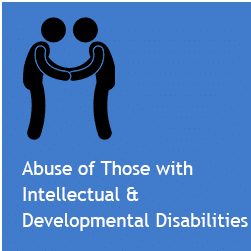“..Advocacy organizations . . . throughout the country continue to uncover terrible examples of abuse and neglect of Medicaid beneficiaries in group homes…”, according to a recently published Health and Human Services (HHS) Office of Civil Rights (OCR) Report. For example, an intellectually disabled person is seven times more likely to be a victim of sexual assault than someone without an intellectual disability, according to a recent NPR exposé.
The HHS Office of the Inspector General (OIG) found that state agencies did not comply with Federal waiver and state requirements for reporting and monitoring MUIs and UIs of individuals with developmental disabilities.
These findings led to an interagency, group effort consisting of the Administration for Community Living, the HHS Office for Civil Rights, the DOJ Civil Rights Division, CMS, and state stakeholders to examine group home health and safety.
The group came up with three suggestions to help CMS support states when health and safety issues arise:
- Recommend that states develop a model for compliance oversight that addresses their four identified components of ensuring beneficiary health and safety. The four components are:
- reliable incident management and investigation processes,
- audit protocols that ensure compliance with reporting, review, and response requirements,
- effective mortality reviews of unexpected deaths, and
- quality assurance mechanisms that ensure the delivery and fiscal integrity of appropriate community-based services.
- Where there is evidence of a systemic failure to implement compliance oversight for group homes, CMS should form a “SWAT” team to assist the state in addressing the problem effectively.
- Where there are serious health and safety findings, CMS should take immediate action, using its authorities under 42 CFR § 441.304(g) for group homes, to ensure that beneficiaries are safe.
While this report directs its recommendations to the states, including the Ohio Department of Developmental Disabilities, Eagle Consulting thought that this information would be of interest to County Boards of Developmental Disability.

